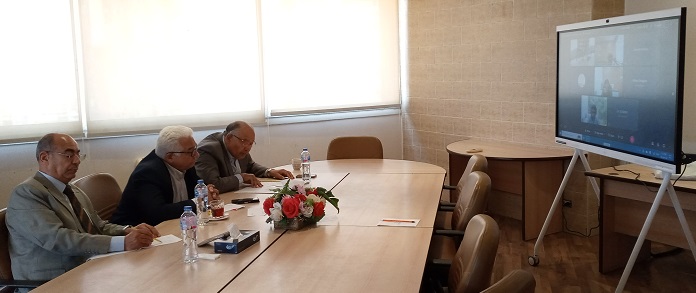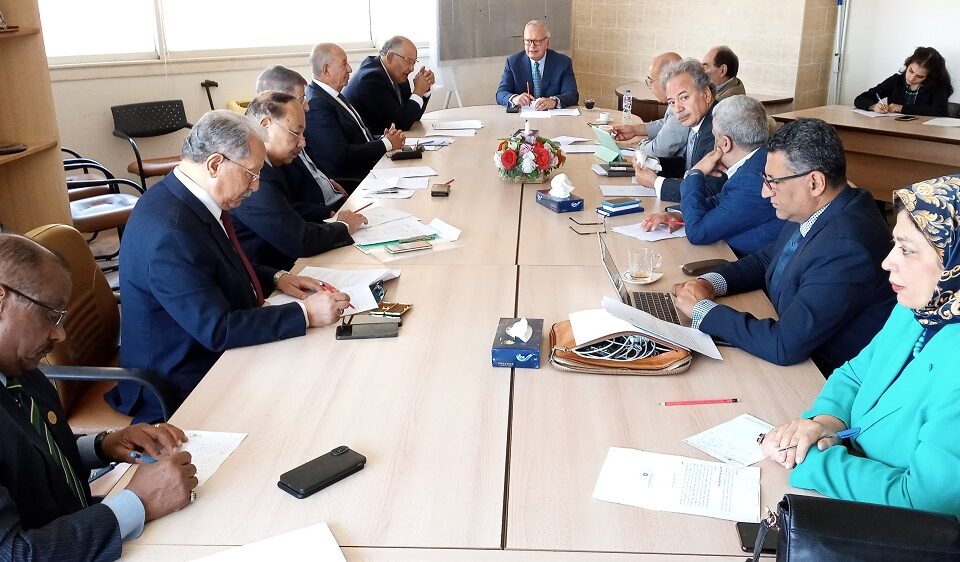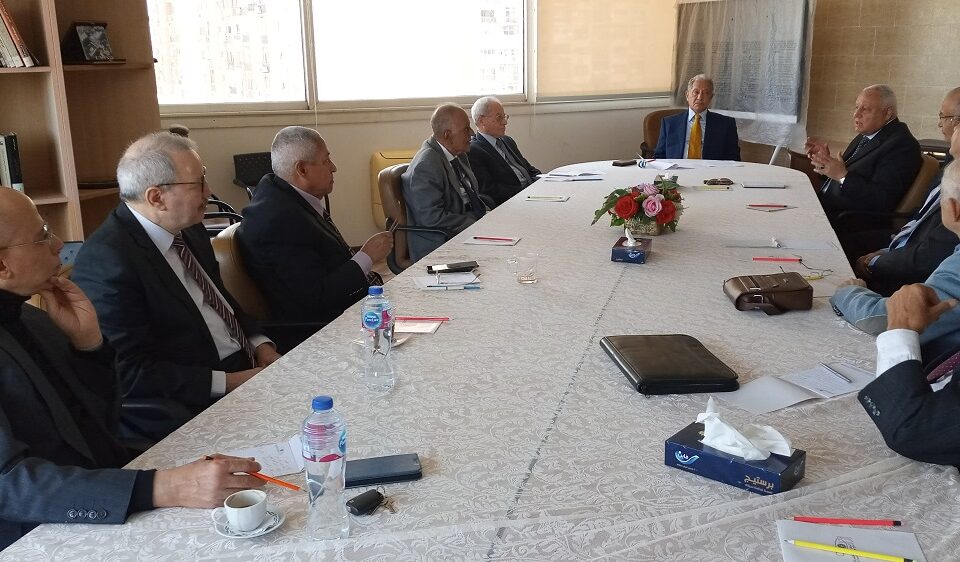Round Table Discussion about “Cutting Diplomatic Relations with Qatar: Implications and Future Prospects’’
June 20, 2017IRCICA and CASS 3rd Congress “China and Islamic World: Mutual Learning of Civilization” (4-5 July, Beijing)
July 5, 2017
On 21st of June 2017, the Egyptian Ambassador to Libya, Mohamed Abu bakar, met with the members of the Council to discuss the developments of the Libyan crisis, specifically the regional roles and the economic aspect of the crisis. Ambassador / Dr.Mounir Zahran, President of the Council, and Ambassador / Dr. Ezzat Saad, Director of the Council, and members of the Council attended by Ambassador / Marwan Badr, Manal Metwally, d. Ahmed Hafez Ibrahim.
In his speech on the first axis on the regional roles in the crisis, Ambassador Mohammed Abu Bakr stressed that despite the decline of the roles of some neighboring countries (Egypt, Tunisia and Algeria) and represented a fundamental pillar in the resolution of the crisis after 2014 due to the widening gap between these countries. However, on the other hand, the years after 2014 witnessed a broad Arab activity to settle the crisis. These efforts led to the signing of the Skhirat Agreement in the Moroccan city of Skhirat in October 2015. The most important of these was Egypt, which tried to overcome many controversial points and settle some of them. Continuous coordination with major powers, and on Led by the United States and Russia, but differences over the composition of the presidential council and the position of commander-in-chief remained stalled.
On the African level, he pointed out that the Union has begun to play a role, on the pretext that African countries are affected by the western role that has been played. A special envoy has been appointed for the Libyan crisis, and a working mechanism has been established in the Congo including the neighboring countries, the Congo and Ethiopia (12 countries), that this role still did not have a clear and effective outcome.
On the Qatari role supporting the extremist groups and leaders, headed by Abdul Hakim Belhadj, he explained that companies were established to transport fighters, weapons and suspicious operations in the Libyan center, and attempts to control the Libyan oil market through the purchase of quotas, according to reports issued, will contribute to reducing this role.
On the second axis related to the impact of the crisis on the economic situation, he explained that since 2013 the size of the reserve $ 160 billion, was depleted and depleted oil reserves, especially following the control of “Ibrahim Badran,” commander of the armed militias controlling the Crescent oil, and control of the supply lines until intervention The army in 2016 after cutting oil production to 50 thousand barrels. However, Libya still represents the world basket of raw materials, which is the reason for the absence of a clear international decision on how to deal with these resources and depletion, especially as Western countries are very concerned about any Russian role, and do not want to transfer the conflict and competition to the Libyan arena, With China, which is why many Western military bases are deployed in neighboring countries such as Niger.






